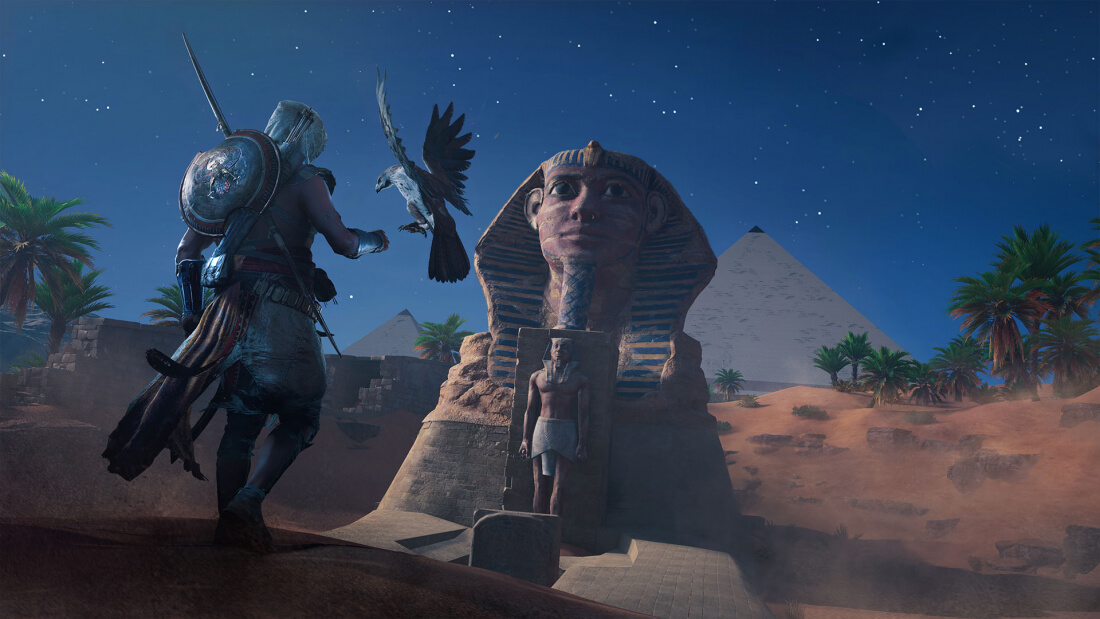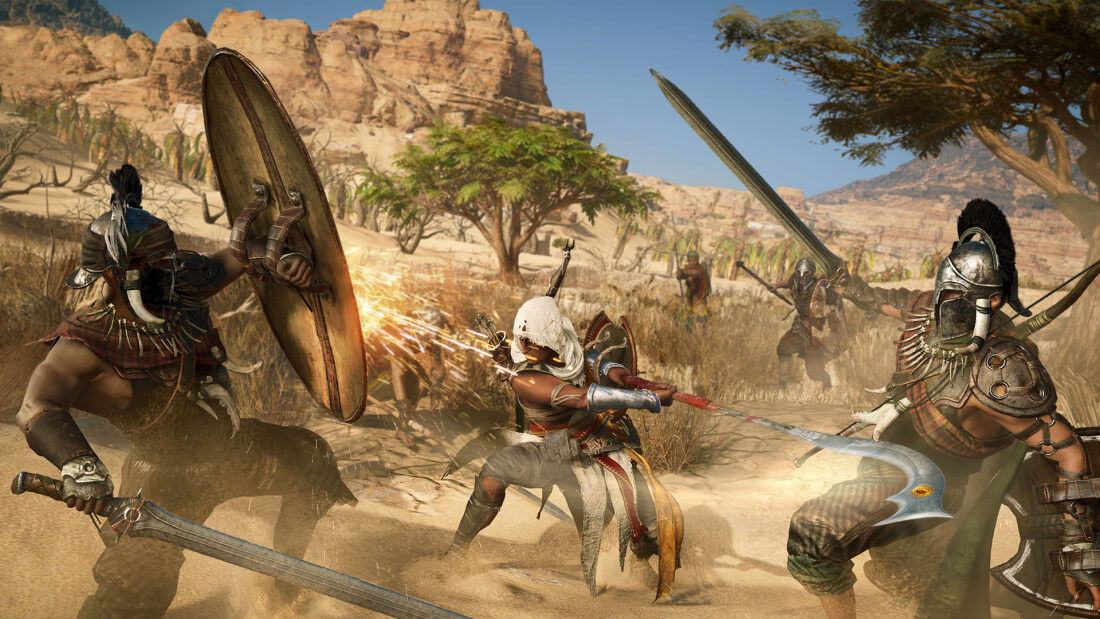The timeline of Assassin's Creed lore goes back all the way to Adam and Eve. However, from a gameplay standpoint, we have only gone back as far as the 11th century with Altaïr Ibn-La'Ahad and his fight against the Templars in the First Crusade in the initial game in the franchise. Subsequent games have all been in more recent periods, the Renaissance and the American Revolution. While we have seen the Brotherhood of Assassins grow, reform, and reshape for each period, we have never actually seen how it all started.
Ubisoft plans to fix that with Assassin's Creed Origins. The latest installment of the franchise will take place in Egypt around the year 40 B.C. The protagonist, Bayek, is not an assassin, at least not at the beginning of the game. According to the developers, he is a member of a type of security force that works for the Pharaoh called the Medjay. While Ubisoft did not wish to reveal too much of the story behind Bayek, they did indicate that events in the game would lead him to become the last of the Medjay, and ultimately bring about the beginning of the Brotherhood of Assassins.
Other than the new time and setting, Bayek will have a few new tricks mixed in with some of the familiar elements of the franchise. One is the addition of his eagle named Senu. According to the game makers, Senu is the precursor to the other games' Eagle Vision. Showing off a considerable portion of gameplay in the Coliseum at E3, developers demonstrated how players would use Senu.
"Senu, be my eyes," Bayek says, and the camera switches to an aerial view of his surroundings.
From this high vantage point, the player can mark enemies, and control Senu to scout ahead. It will add a bit of a strategic element to the game that is different from the games in the past. Players will be able to plot out a course through an enemy held territory and make decisions on how to approach the area based on their play style. Freedom to play how you wish is a mechanic that several companies have been striving for with their games, but Ubisoft seems to be taking an overhead approach to the gameplay dynamic that has not been seen in other recent titles.
They also decided to bring back the bow and arrow, which has only appeared in one other game in the franchise, Assassin's Creed III. Like the throwing knives, the bow is a good long range stealth weapon ideal for taking out the rooftop guards. Also if there is a flame source nearby, arrows can be ignited.
Like all the games, the weapons will be themed with the period. In addition to the sickle-like Egyptian sword, the Khopesh, players will have spears and various other weapons at their disposal. However, this time around Ubisoft decided to play with the weapon system a little more.

For one, weapons will have a rarity level with less common weapons dealing more damage or providing other benefits. They also have added status effects to certain weapons such as bleed and poison. The status effects will be appropriate for the weapon type. For example, blades can cause bleeding, and tipped weapons like spears can be poisoned.
One other change in store is with the hidden blade. There is a crafting system that the player will use to build and improve the hidden blade. The hidden blade will no longer "just automatically one-shot assassinate" enemies, the developers explained. Higher level enemies will take damage from the hidden blade (coming out of stealth), but if you want to one shot with the hidden blade, "you have to continually craft better blades."
Overall it looks like the developers have put quite a bit of time into changing the game enough to bring it a welcomed freshness, while still holding to the core principals and mechanics of the franchise. I quit playing the franchise after AC III, as I felt it had grown stale, but the changes that they demonstrated and described have me interested in giving it a try again.
Assassin's Creed will launch on October 27, 2017, for PC, Xbox One, and PlayStation 4.
